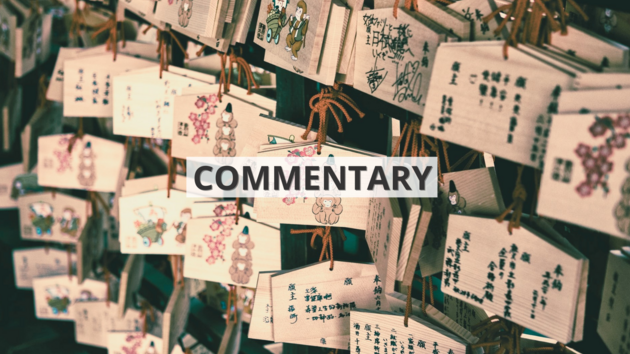The United States as a bankrupt state
The United States’ image in China is mainly drawn from three areas: the international policy of hegemony which is partially implemented through competition with China, the USA’s domestic problems with managing Covid-19, and cultural bankruptcy. In general, the Chinese media has presented America as a restive, paranoid, and morally challenged hegemon, causing most of the world’s problems in a bid to create issues that sustain its gradually fading power. China’s narrative posits that the USA lacks the assurance established by the post-Cold War liberal power, with the country relying on its ability to undermine China and other peacefully rising nations, including its allies, to underpin its sense of security. China’s depiction of the US links it with different prevailing international relations problems, from fake news to foreign regime change as well as emphasizing China’s responsibility for the COVID-19 pandemic.
In the eyes of the Chinese media, America threatens its status from within. As stated in an August 2021 editorial in the People’s Daily newspaper, “The US’ greatest enemy is the US itself”. The Chinese side declared that China’s development has never been built upon the US’ decline, and Washington is only obsessed with portraying China as a ‘potential enemy’ and setting US-China relations on a collision course. The reason US has kept using the pandemic as an excuse to spread rumours and to talk ill of China is that some Americans cannot accept the fact that China has become a powerful nation. Such behaviour from the US, the newspaper stated, has once again broadened our known understanding of an American hegemon while exposing the blatant ignorance the US has about the world’s latest developments.
The editorial then states that it seems the US has forgotten that it is facing the world’s second largest economy that is determined, strong-willed, and capable of defending its sovereignty and border integrity. The American policy is also the driving force behind China’s policy of community with a shared future for mankind and bringing new opportunities to the world through its development. Until now, around 60 countries have written to the WTO in recognition of the first phase of COVID-19 origin tracing and oppose the conspiracy to politicize this progress. In a matter of days, over 12 million Chinese netizens have signed a petition to urge the WHO to start an investigation into the US, being the origin of COVID-19, and which is a testament to global public opinion.
At the same time, the US society is described by the Chinese media as being corrupt and on the brink of collapse. China has accused US of contaminating the Chinese youth with its “efficacy” culture, rendering Chinese men incapable of managing themselves or being potentially effective in a wartime situation. The US is portrayed as a lazy, depraved and morally confused nation, riddled with social problems, hate crimes, political scandals, and internal conflicts, and is no match for the socialist-driven and razor-sharp China under the CCP.
Moreover, the problem with racism and gun violence was also discussed by the Chinese media. The number of guns and gun violence has long troubled US society, but special interest groups led by the NRA have nullified efforts on regulating the proliferation of weapons through funding sympathetic political candidates and lobbying. Extortionate drug prices set by US pharmaceuticals has also hurt the public, and the increasing amount of money in politics has turned the US government into a mouthpiece of the rich. This makes bridging the wealth gap all but impossible.
Consequently, the US is portrayed as the leader of this cultural sabotage, responsible for erecting obstacles in the fields of economics, technology, finance, politics and diplomacy, and assaulting China on biological (probably referring to COVID-19), telecommunication networks (probably referring to Huawei), public opinion and space, with the help of domestic fifth columnists. The theme is that if the CCP does not resist through hardline socialist politics, the US will sabotage China as it did with the USSR.
Problems with legitimacy inside China?
Presenting the very negative image of the United States, the Communist Party of China looks for the legitimacy of its own power. We need to acknowledge that the government in China is trying to manage a state of younger people who are predominantly part of the “little emperor generation”. According to a survey published by “Global Times” (2021), young people in China are not particularly interested in Western values, education, or political systems. To the question ‘if the budget permits, what would you most want to do in the West?’: 54.6% of respondents answered ‘travel’, only 10.9% answered ‘study’, while 25.9% answered ‘not interested in the West’. For those who picked ‘travel’ and ‘study’, 53.8% and 31.8%, respectively, said that their ‘willingness to do this had decreased’. Asked about the strengths and weaknesses of China and the West and ‘in what aspect do you believe that China has surpassed the West?’: 60.3% of respondents chose ‘social law and order’, 57.1% said ‘respect for human rights and 35% chose ‘history and culture’. These three aspects also rank top in what the Chinese youth believe Western countries can learn from China’s experience.
To a certain degree, the government, by using the 50 Cent Army, a government-sponsored internet group established to stimulate public debate, has indeed shaped public opinion. However, despite this general public ‘safety valve’, the above discussed social phenomenon of the “one-child generation” have created a rather unique situation. To prove its legitimacy, the Communist Party of China needs to control and follow public sentiment as illustrated in the abovementioned survey results and create an aggressive narrative towards the West. If it does not, it may face popular unrest and may be accused of not defending the legitimate interests of the Chinese people. Thus, the central government’s current assertiveness in fact reflects the general public’s opinion regarding these matters.

